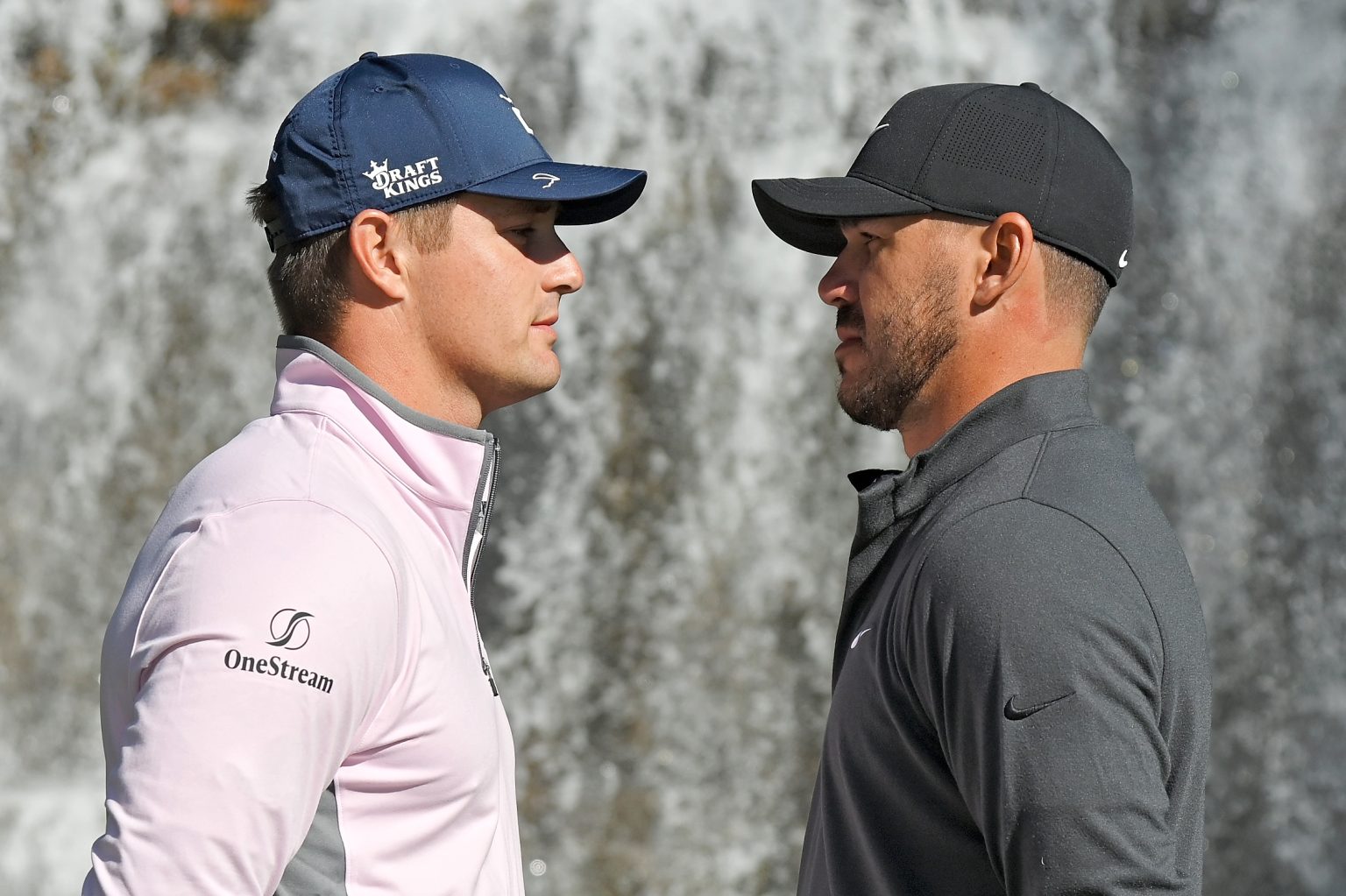The DeChambeau-Koepka Rivalry: A Silent Renewal in LIV Golf
The simmering rivalry between Bryson DeChambeau and Brooks Koepka, once golf’s most captivating feud, has taken an unexpected turn at the LIV Golf Team Championship. After what appeared to be a period of reconciliation between the two stars – marked by a friendly photo together in 2023 and their good-natured pairing at last season’s Crypto.com Showdown – tensions have quietly resurfaced, not through heated exchanges or competitive battles, but through a surprising strategic decision. On Friday, as both men’s teams (DeChambeau’s Crushers GC and Koepka’s Smash GC) advanced to the semifinals, fans eagerly anticipated what seemed inevitable: a head-to-head singles match between the two captains. Koepka, positioning himself as Smash’s number one singles player, appeared ready for the showdown. DeChambeau, however, made the unexpected choice to face Talor Gooch instead – Smash’s best performer this season – leaving golf enthusiasts and Koepka himself bewildered by the apparent avoidance.
“I don’t know what the thinking was behind that,” Koepka remarked to reporters at The Cardinal, barely disguising his frustration. “I’d probably say the people would want to see that. I don’t know what he was afraid of.” The five-time major champion didn’t stop there, adding that DeChambeau “beats to his own drum” and describing him as “a strange cat.” These comments resurrected echoes of their past friction, which had seemingly dissolved over recent seasons. The decision fundamentally altered the anticipated matchups, with Koepka now set to face Anirban Lahiri while DeChambeau takes on Gooch – a shift that may make strategic sense but struck many observers as a missed opportunity for golf drama at its finest.
From a purely analytical perspective, DeChambeau’s decision could be justified through statistics. Gooch ranks sixth in the LIV Golf standings and has been the most consistent performer for Smash GC throughout the season. Meanwhile, Koepka sits considerably lower at 31st, despite his illustrious major championship pedigree. DeChambeau himself occupies the third position in the rankings, bolstered by his impressive U.S. Open victory earlier this year. The numbers suggest that facing Gooch presents a more significant competitive challenge – if one’s primary concern is team strategy rather than personal narratives. Yet the optics remain unavoidable: two rivals with a chance to settle their differences on the course, with one apparently choosing to sidestep the confrontation.
When questioned about his decision during Friday’s conference, DeChambeau offered a cryptic response that only deepened the intrigue: “I’ve got my reasons. It ain’t personal, I can tell you that. It’s not personal.” The emphatic denial naturally raised eyebrows – denying something is personal often suggests the opposite. This moment represents a fascinating new chapter in what has been golf’s most compelling interpersonal drama of recent years. Their rivalry began years ago, characterized by subtle jabs, social media snipes, and palpable tension whenever they shared a tournament field. It escalated to such prominence that it culminated in “The Match” – a made-for-TV exhibition that pitted them directly against each other, capitalizing on their mutual antagonism.
The rivalry between DeChambeau and Koepka has always been more than just a sporting contest; it represents a clash of personalities and approaches to golf. Koepka embodies the traditional athletic golfer – powerful, straightforward, with an almost dismissive confidence. DeChambeau, conversely, arrived as golf’s scientific revolutionary – the “Mad Scientist” with his single-length irons, physics-based approach, and dramatic body transformation. Their differences extended beyond playing styles to their public personas: Koepka’s laid-back, sometimes aloof demeanor contrasting with DeChambeau’s enthusiastic, detail-oriented intensity. These fundamental differences made their rivalry compelling even when they weren’t directly addressing each other, as they represented competing visions for what a modern golfer could be.
The latest development at the LIV Golf Team Championship suggests that despite public appearances of reconciliation, the underlying tension between these two distinctive personalities remains unresolved. Whether DeChambeau’s decision was purely strategic or contained elements of personal calculation, it has successfully reignited interest in a rivalry that many thought had cooled. As both men continue their careers in the LIV Golf series, separated from the PGA Tour environment where their antagonism first flourished, fans will be watching closely for further developments. The beauty of this particular rivalry has always been its understated nature – the meaningful glances, the carefully chosen words, the strategic avoidances – all suggesting that beneath golf’s veneer of gentlemanly conduct, these competitors harbor genuine feelings about one another that transcend the typical professional respect. As the LIV Golf Team Championship continues, the DeChambeau-Koepka storyline reminds us that in sports, sometimes what doesn’t happen can be just as revealing as what does.


